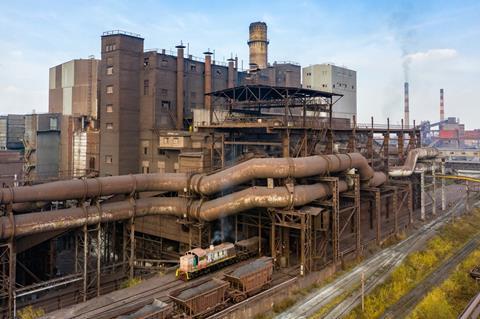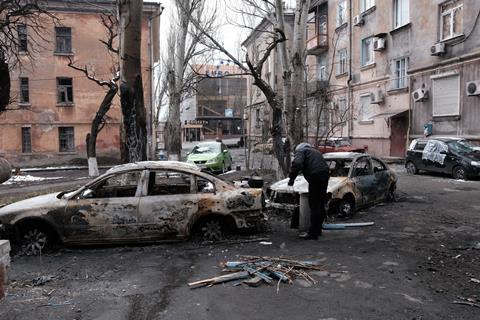�ڶ����� understands one Tier 1 firm has invoked force majeure clause over missing steel on central London job
Construction lawyers have said they expect to see the impact of the conflict in Ukraine become more common in legal wrangles between clients and contractors this year.
�ڶ����� understands that one major contractor has invoked a force majeure clause in its contract on a central London commercial job – citing the impossibility of getting hold of steel it had ordered from Ukraine.
Its claim hinges on the fact that the steel mill in the war-torn country has told it that it cannot fulfil its order because of the ongoing Russian invasion which is now in its sixth week.

Yesterday, the Construction Leadership Council issued an inaugural guidance note on the war to clients, main contractors and subcontractors – with the group telling firms to keep up the spirit of collaboration forged at the start of the covid-19 pandemic if they are to avoid legal disputes.
Its advice added: “The potential volume of project disputes will be reduced if major drivers – inflation or availability – are shared rather than transferred.”
But lawyers have told �ڶ����� they are expecting the impact of the war to be cited by contractors if jobs fall behind schedule or costs jump out of control.
>> Legal comment: Force majeure in the context of war
Angus Rankin, international construction disputes partner at Vinson & Elkins, said it was “only a matter of time” before contractors invoked force majeure clauses, citing Ukraine.
He said: “It’s only a matter of time until the Ukrainian situation makes its presence felt across a wider range of projects – something of a ripple effect.”
And Brad Fearn, partner in construction law at Wedlake Bell, added: “I think we can expect to see contractors having a go at claiming an extension of time on a force majeure ground citing the Ukraine war as the reason for the delay, where relating to materials that may be sourced in Ukraine.
“I think we may see a position evolving over 2022, whereby contractors may possibly get an extension of time for delays involved in sourcing materials from Ukraine but they are very unlikely to have contractual grounds for additional monies.”
Echoing the advice of the CLC, Rankin said clients and contractors needed to work together to make sure jobs didn’t get held-up by legal disputes – or firms going bust.
He said: “While it may be open to the employer to stick rigidly to the contract that may not serve the long-term needs of the project best and it’s possible a commercial deal for more time and/or money needs to be struck. Fundamentally, employers and the people who lend money to them live or die on whether completed projects are in the ground and earning revenue to pay off project finance debt and reward equity investors. It is usually a disaster for the employer and its lenders too if they force the main contractor into a position where they have to be terminated, go insolvent.”

But he warned contractors that citing force majeure would be problematic: “The difficulty is that most force majeure clauses won’t bring relief if there is some way for the affected party to mitigate the impact, such as buying steel elsewhere, even where that alternative route may be more expensive or time-consuming. If there is no reasonable way to mitigate the impact then the affected party may be on stronger ground.”
Fiona Edmond, construction partner at Charles Russell Speechlys, said: “Discussions around cost increases are [currently] largely centred around the vast hike in energy costs along with the lengthening lead in times, exacerbated by the war, but not the war itself.
“In new contracts we are seeing contractors pushing for clauses where the employer takes the risk of price fluctuations, something not really seen since the 1970s. The potential unavailability of transport to deliver materials from countries neighbouring Ukraine is also a key area of concern. We have heard of instances where trucks large enough to transport materials to the UK are not available as they are, understandably, transporting aid to Ukraine. There will be more arguments to come on this all eventually.”
In its guidance note, the CLC has produced a checklist for main contactors, subcontractors and clients and added that firms need to communicate clearly, be flexible and conduct business with respect.



























No comments yet